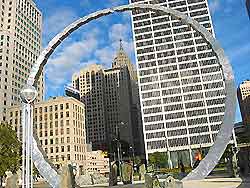Harold Bloom on Pericles.
Bloom on Perciles
What follows is some notes I took from Bloom's Book Shakespeare: The Invention of the Human. The Chapter on, you guessed it, Pericles.
First two acts are rather poorly written, and thus cannot have been Shakespeare’s
Ben Johnson had hand in editing the first folio, and denounced Pericles as “a mouldy tale”
It appears that a man named George Wilkins was the primary author of the first two acts.
He was “a lowlife hack, possibly hanger-on” that the Bard may have illustrated
the plot to.
Was a whoremonger in London ---> an unsavory fellow in London.
Very odd in genre, and features choral recitation by a presenter ---> John Gower, medieval poet. ---> improves over the course of the play.
Has sporadic continuity ---> we are give episodes from the lives of Pericles, his wife Thaisa and daughter Marina.
The episodes do not generate each other as they would in rather history, comedy
and tragedy.
Seems that Shakespeare had exhausted these modes
Pericles has no personality whatsoever
Marina has lots of virtue but no personality to speak of.
There cannot be that individual a pathos in the emblematic world of Pericles, Prince of Tyre.
Pericles and Marina are a universal father and daughter
His only importance is that he is her father, who loses her and receives her again
Her only importance is that she is his daughter, who suffers separation and
redemption.
The importance her is relationship, NOT ARCHETYPES.
Pericles is just real enough to suffer trauma, and Marina strong enough to resist
being debauched, but both scarcely exist as will, cognition, and desire.
To Bloom Pericles is the only play he would rather see than read. This is because it is so poorly written.
Shakespeare compensated by making the last three acts of this play an radical
theatrical experiment.
In the Epilogue, Gower’s speech indicates the triumph of virtue over fortune, thanks to the intercession of the gods.
There appears a late life obsession with Diana in Shakespeare’s life
There are only two deities in Pericles, Neptune and Diana, and Diana wins
Such an emptying-out of Shakespeare’s characteristic richness is kenosis of sorts; the most sophisticated of all poet-playwrights surrenders his greatest powers and originalities - God becoming man, as it were
Kenosis is a Greek word for emptiness, which is used as a theological term
One suspects that the scenario for the play originated with Shakespeare, but that he had some distaste for what was to go into the first two acts and assigned them to his crony, Wilkins.
Shakespeare takes over on Pericles voyage back to Tyre with his wife and newborn
This scene highlight’s Shakespeare’s Melville’esque character III.i.1-6
Diana is the patron goddess of Ephesus where Thaisa is washed up
Shakespeare avoids the patterns of Christian miracle plays in exalting Diana.
Most vivid scenes to Bloom at the episodes of defiance in the brothel by Marina, and the recognition scene between Pericles and Marina on board of the ship in Act IV
Only in the brothel scenes does Shakespeare’s mimetic art return
Pandar, Bawd, and Boult all have personalities.
Interestingly enough these personalities must yield to divine virtue of Marina
She not only defeats them, but also wins over and converts the governor,
Lysimachus.
Clearly we have to regard Marina’s chastity as being mystical or occult; it cannot
Be violated, because Diana protects her own.
After her reunion with her father she can now be married to Lysimachus, both
because now he knows he social rank is at least as high as his, and also because
Diana accepts married chastity as an alternative for votaress.
Comedy is brothel scene is one of Shakespeare’s most advanced.
Only the irony of Marina’s invulnerable status maintains the dramatic structure’s
coherence.
Pericles appears on his ship like Kafka’s undead Hunter Gracchus on his death ship
Bur Gracchus is the Wandering Jew, caught forever in a cycle, and Pericles at last
is on the verge of release from his passive yielding to a procession of
catastrophes.
Obvious comparative nature between incestuous father-daughter and virtuous
father-daughter in recognition scene.
“Extremity” sums up all of Pericles’ catastrophes; awe is a proper response to the tribute father makes to daughter, as her smile undoes the whole history of his calamities.
Marina stoic like response to the recognition scene are perhaps rooted in her divine connection through virtueHe went well beyond Pericles in the romances that followed it, but this play was the school he learned his final art. ---> Well, the last 3 Acts anyhow.


0 Comments:
Post a Comment
<< Home